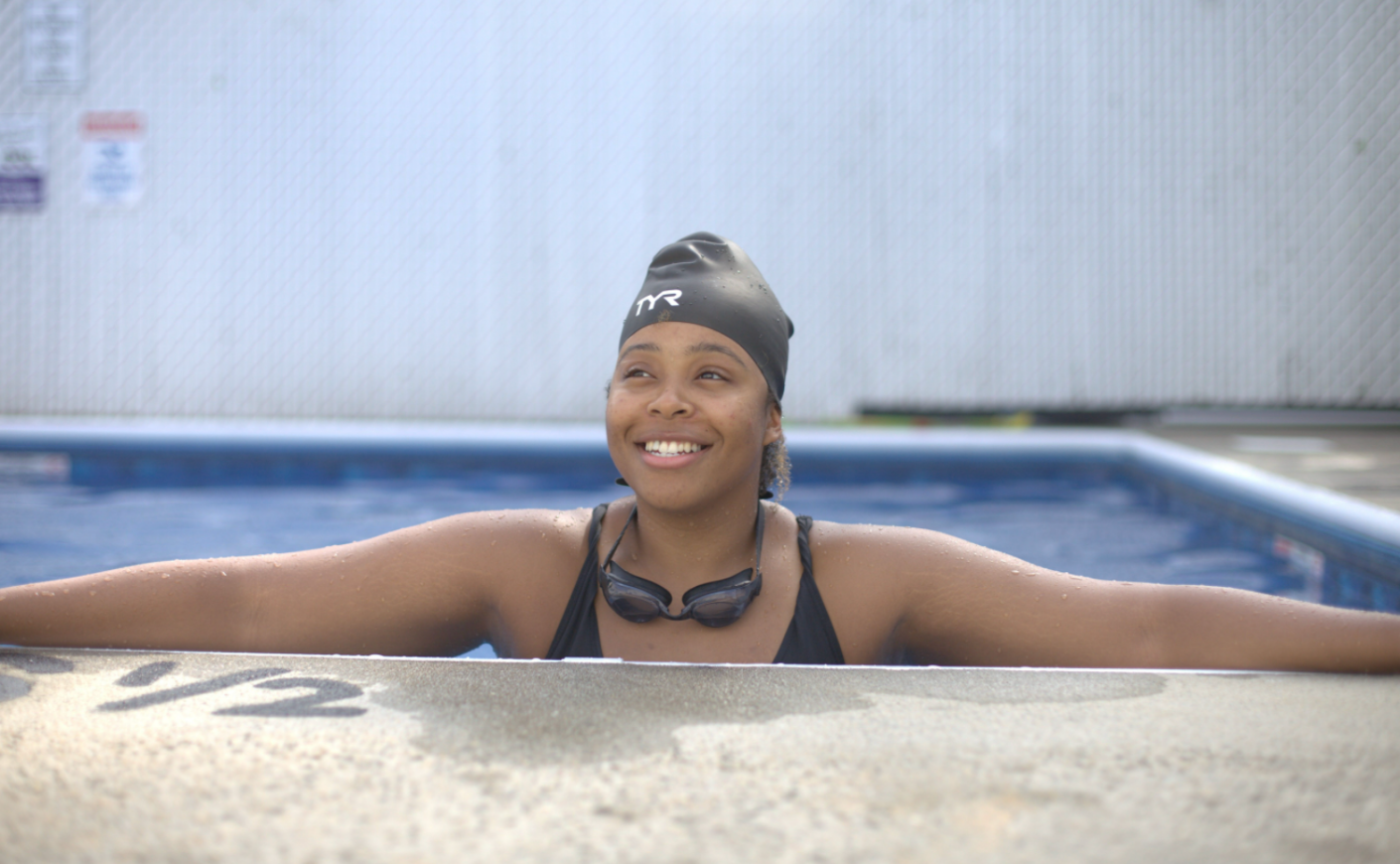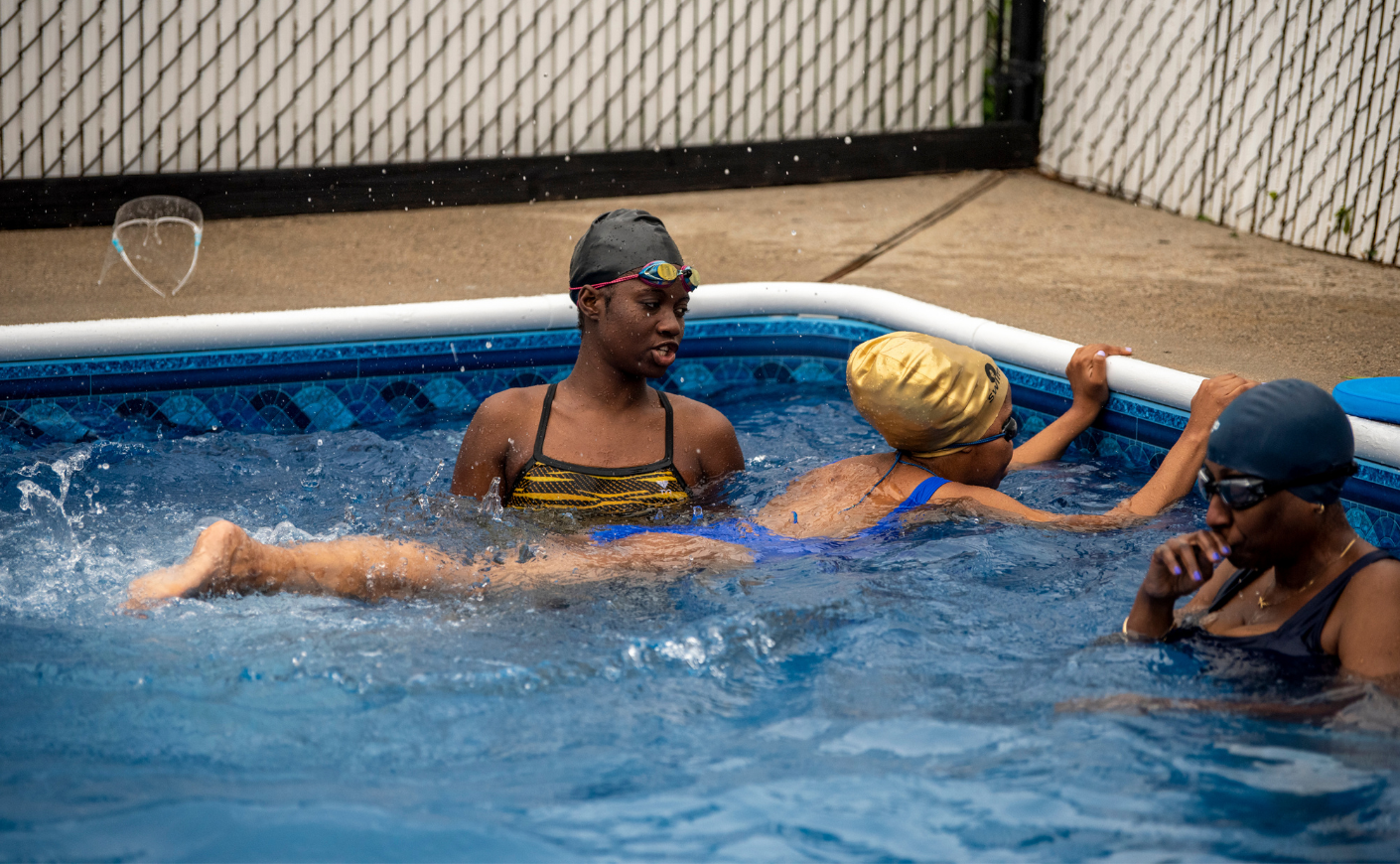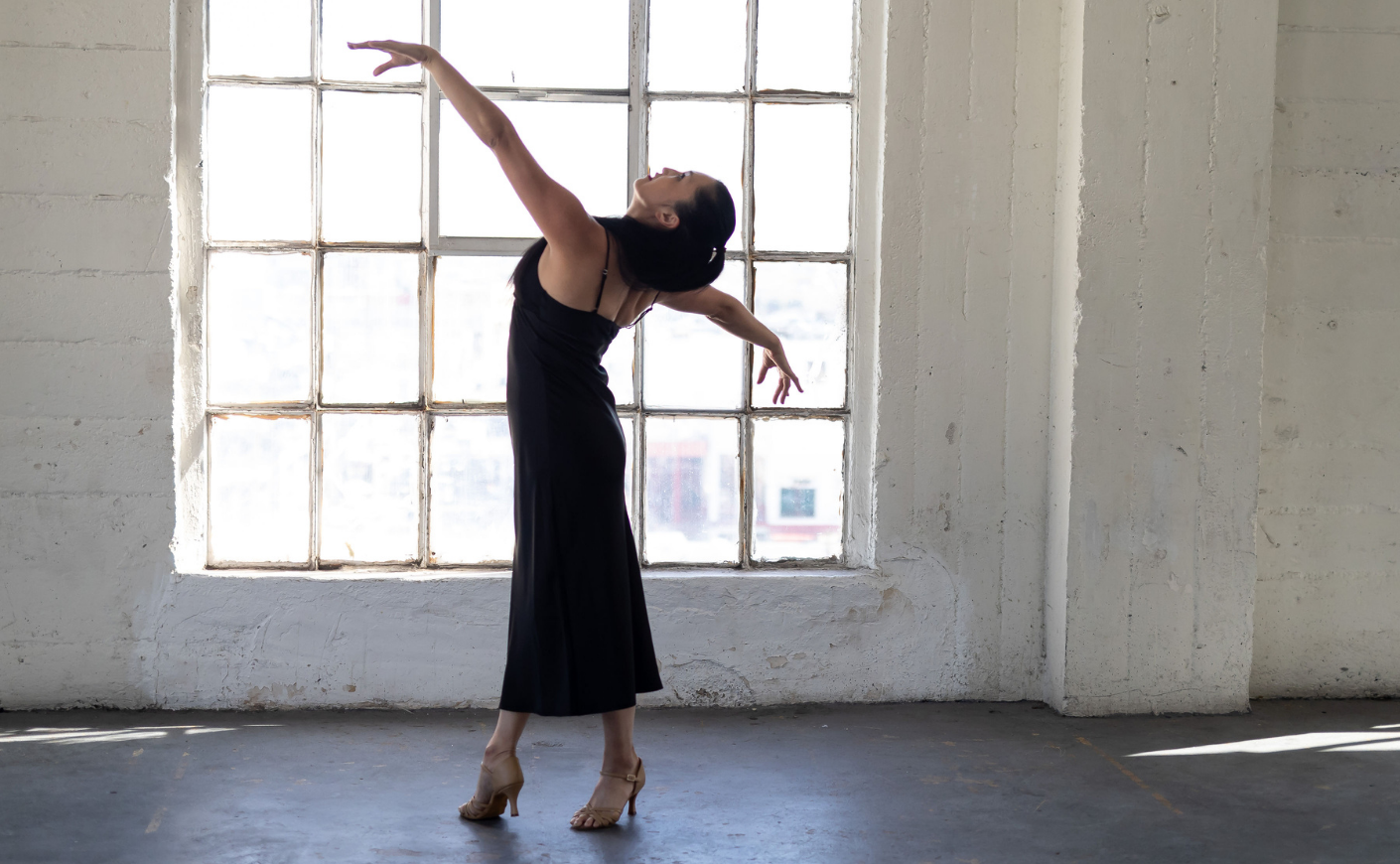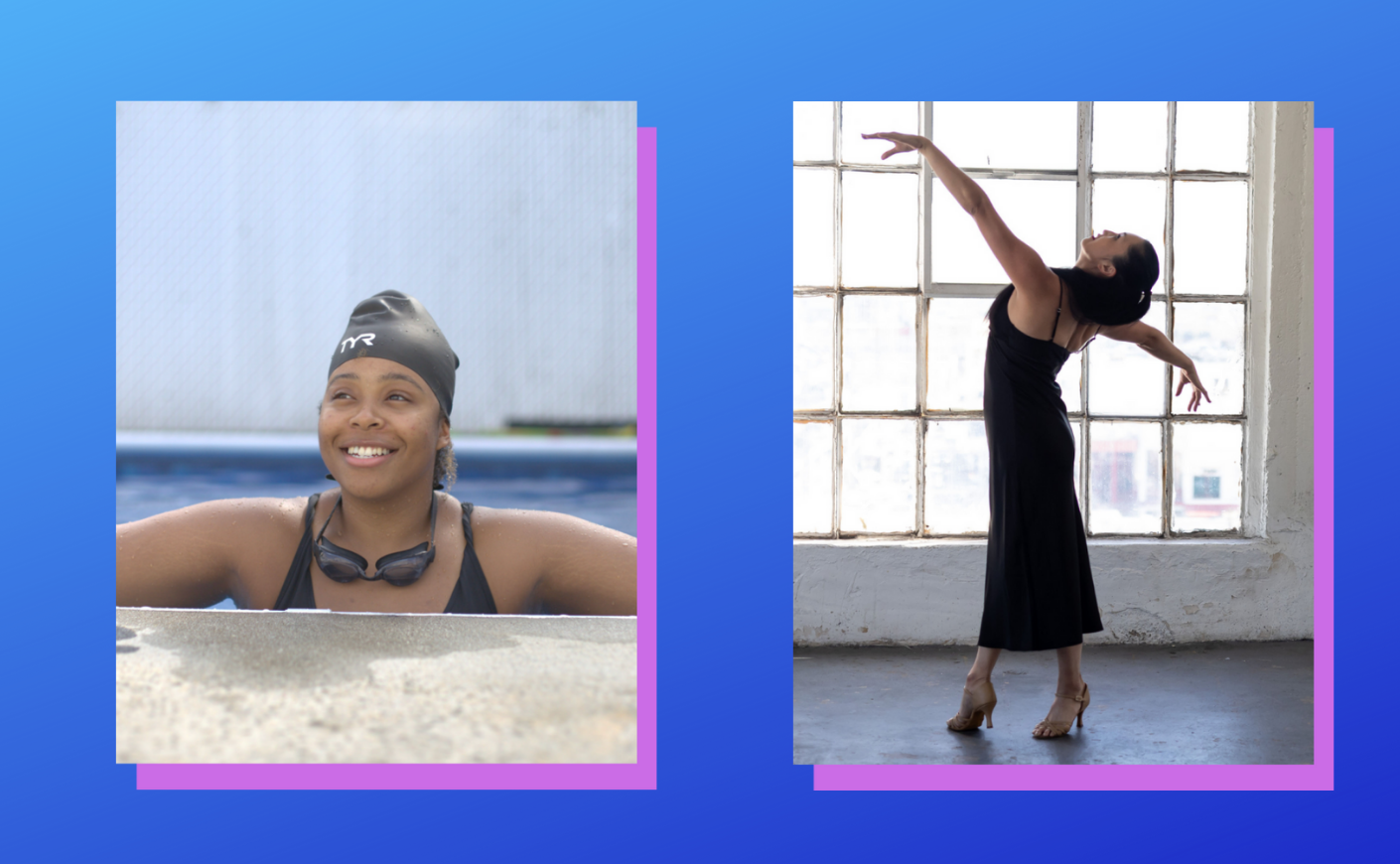Sometimes the coolest business ideas are the ones that go back to the basics. We’re talking no frills, no futuristic gadgets, no patented technology involved. It’s often the more simplistic ideas (the ones that have you scratching your head wondering, why hasn’t anyone done this yet?) that make the biggest impact on people’s lives. At least that’s the strategy the two entrepreneurs below are taking. They both took inspiration from their personal lives to launch businesses that help smash outdated and harmful stereotypes.
Below, learn how these trailblazers married their passion with their purpose, how they’re disrupting their industries, and where they’re putting their energy next.
She’s dismissing the false story that Black people can’t swim

Paulana Lamonier knows how harmful long-held untruths can be. When, one summer, she made a goal for herself to teach 30 Black people how to swim, she quickly realized how a racist stereotype prevents many Black people from ever stepping foot in a pool or ocean. “I had a client of mine say, ‘I can’t swim because my bones are too dense,’ and I was like, ‘Where did you hear that from?’” Lamonier tells us. “From that moment, I did more research and started thinking: What have we taken as truth that’s not actually true? I realized that this was a need in our community and things took off from there.“
Lamonier founded her company, Black People Will Swim, to not only teach members of the community to feel comfortable in the water but also address the racism that’s preventing so many people from learning that skill. “I can't say we're the only Black company that’s offering swim lessons — there are a ton. But our mission is to expose the reason why Black people have been kept out of the water, and that’s racism,” says Lamonier. “Racism has a domino effect that leads to lack of affordability, accessibility, and representation. That's what makes our business and our initiative different.”

Lamonier’s original goal — to teach a few dozen people how to swim — has certainly grown. “We're still on a mission to teach, and smash a stereotype, but we don't want to put a restriction on that. We want to teach everyone — all types of Black people and people of color — how to swim,” says Lamonier.
Black People Will Swim caught the attention of our friends at Ally during last year’s Daring to Disrupt contest: Lamonier took home the grand prize, allowing her to kickstart her first swimming program on Long Island, N.Y. “The grant helped us scale our business tremendously; we were able to hire and certify people,” says Lamonier. “Now, we're working on our merchandise line. Black People Will Swim is all about eliminating the barriers that prevent black people from swimming. One of the main issues that we encounter is our hair. But with the merchandise line we're working on, we'll be able to provide the necessities you need to have the best experience in the water.”
What’s coming up for the company? Her next swimming program will launch in April. But Lamonier’s eyes are set on owning her own community pool. “You see Black-owned barbershops, hair salons, and clothing boutiques, but how often do you see a Black-owned pool?” says Lamonier. “For a sport that we've been kept out of for so long, us having a pool is basically saying we're taking our power back. And not only that, we’re putting a stake in the sport.”
This stroke survivor created a dance company that celebrates disabilities and differences

Growing up, Marisa Hamamoto’s world centered around dance. While she didn’t study it in college, she says, “In my heart, I really wanted to dance and build a professional career out of it.” So when Hamamoto suffered a stroke in 2006 that paralyzed her from the neck down, she was heartbroken. “That meant that I would never be able to dance again,” she says. “I thought my life was over.”
Two months later, Hamamoto walked out of the hospital with a newfound appreciation for life.
“After my physical recovery, I was scared to dance for four years. But then I found ballroom dancing,” says Hamamoto. So she headed out to L.A. to live out her dreams of a professional career in movement. However, it was short-lived: She soon learned that her ballroom-based style wasn’t commercial enough. “I kept running into this situation where I didn’t fit the box anywhere. But I realized I wasn’t the only person who was dealing with not fitting in,” says Hamamoto. “As a stroke survivor, when I discovered that dance wasn’t equally accessible to people with disabilities, I thought, Let’s create a dance company full of dancers who don't fit the box and see what happens.” That new mission led her to launch Infinite Flow Dance in 2015.
Today, Infinite Flow is populated with 12 unconventional dancers — some are blind, deaf, manage learning disabilities, or use wheelchairs. “We’re here to show the world that the human race is diverse and beautiful, and there’s no need to feel like you have to fit in,” says Hamamoto. “You can be your authentic self.” Since launching her company, they’ve performed for a range of audiences — from Fortune 500 companies like Apple and Facebook to small school assemblies. The troupe’s even been featured on Good Morning America.
Hamamoto says she’s an avid reader of Katie’s Wake-Up Call newsletter. So when she read last year that Katie and Ally were looking for submissions for the Daring to Disrupt contest, she felt pulled to submit a pitch. “I encourage entrepreneurs to keep putting themselves out there, whether it's through their own pitching or outreach, or through submitting to grants and contests,” she says. “Even if you don’t win or get the grand prize, it’s just one stepping stone toward your next thing.”
What’s next for Infinite Flow Dance? “My current focus right now is to work on the sustainability and financial growth of our company,” says Hamamoto. “Even though we’re a dance company, I'm always thinking about ways we can impact the mainstream.”
Our friends at Ally are championing the future of inspiring and innovative female entrepreneurs, like Paulana and Marisa through their Daring to Disrupt platform. Daring to Disrupt showcases the stories of women who are changing industries by challenging the status quo. Want to meet more female disruptors? Starting March 8 (on International Women’s Day!), we’ll be introducing you to eight new passionate women who are breaking glass ceilings and shattering outdated ways of thinking. Stay tuned for more.












